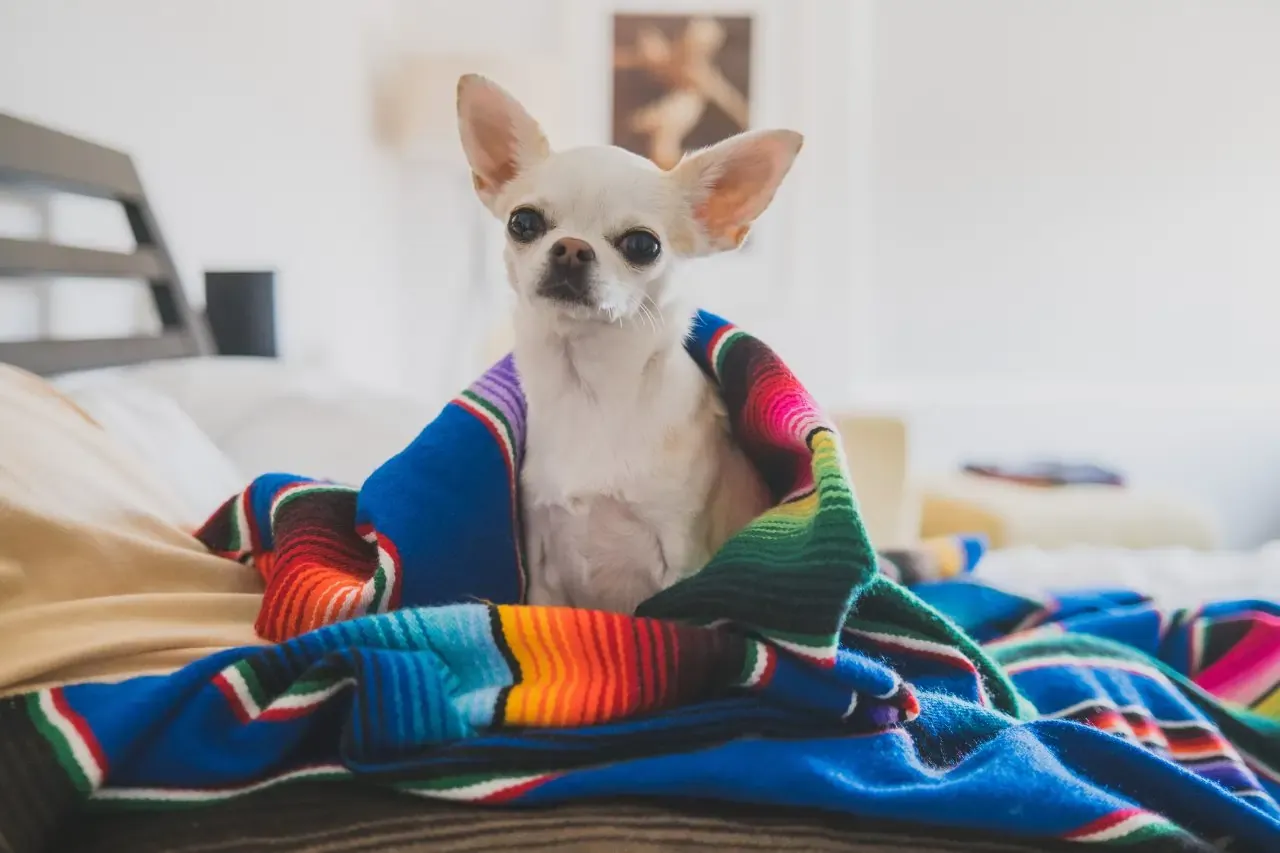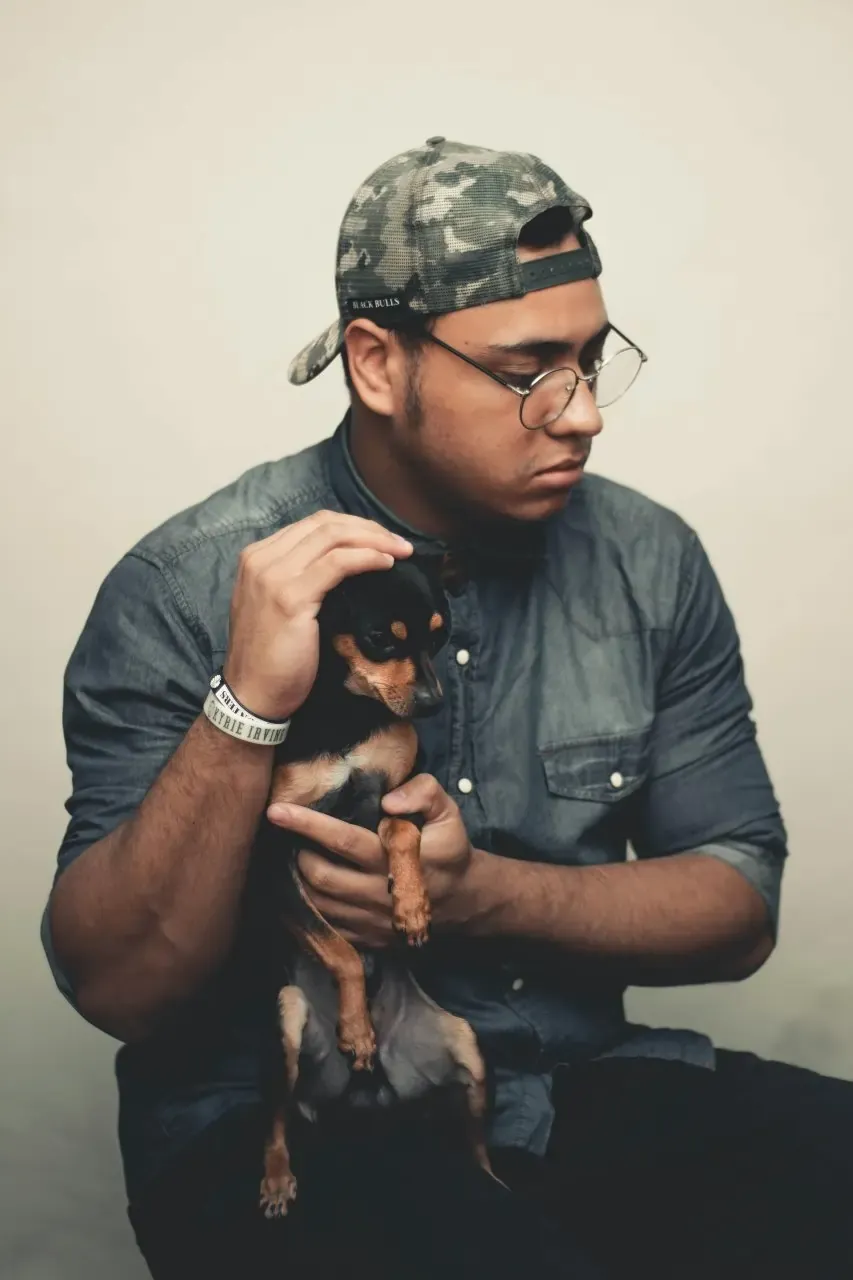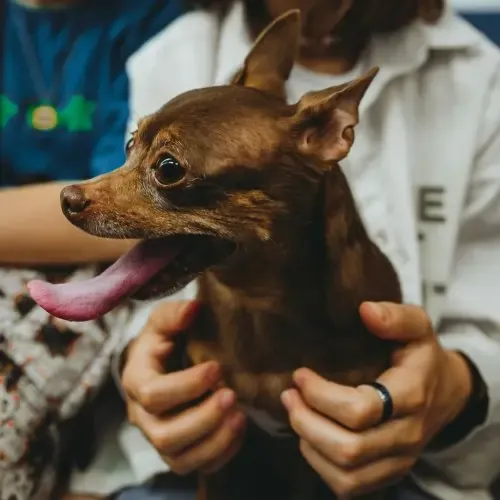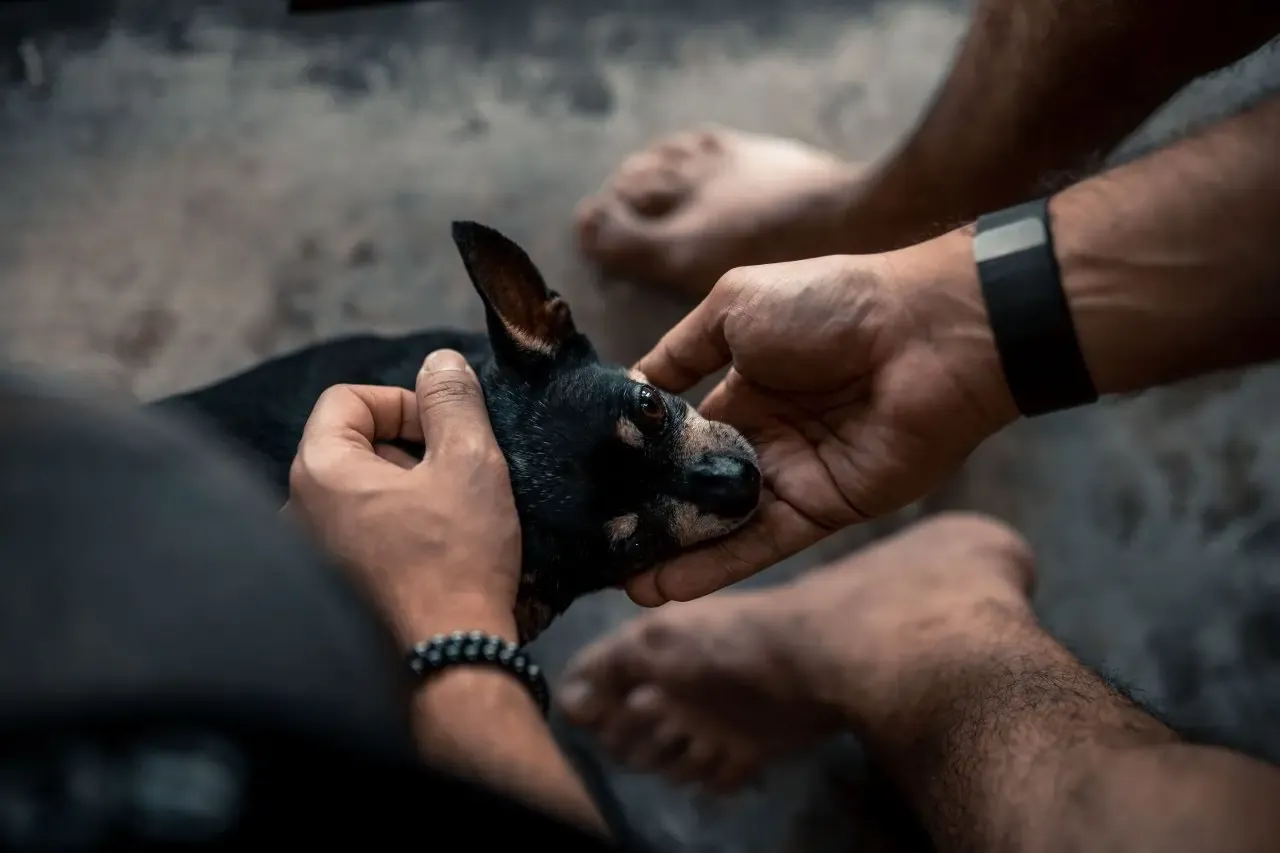As the smallest of dog breeds, Chihuahuas are renowned for their feisty personalities, unwavering loyalty, and surprisingly long lifespans. It’s a joy to share many years with these endearing companions, but with longevity comes the natural progression into their senior years. A common question among dedicated owners is, “At What Age Is A Chihuahua Considered A Senior?” Understanding this transition is crucial for providing the best possible care, ensuring their golden years are filled with comfort, health, and happiness. This guide will delve into the specifics of Chihuahua seniority, the unique needs of an aging Chi, and how you can support your beloved pet through every stage of their life.
Defining Seniority: When Does a Chihuahua Become a Senior?
While there’s no universally fixed age for every dog to be labeled “senior,” general guidelines exist, often categorizing dogs by size. For small breeds like Chihuahuas, the journey into their senior years typically begins later than for larger dogs.
Chihuahuas are generally considered senior at approximately 11 to 12 years of age. This benchmark aligns with the understanding that smaller breeds mature faster but also tend to live longer, delaying the onset of age-related issues compared to their larger counterparts. However, this is a guideline, not a strict rule. Just as with humans, individual Chihuahuas can show signs of aging earlier or later depending on genetics, lifestyle, diet, and overall health history.
Learn more about what constitutes a senior dog age and the factors involved in this classification.
Individual Variation and Factors Influencing Seniority
Several factors can influence when your Chihuahua truly begins to exhibit senior characteristics:
- Genetics: A strong genetic lineage free from predisposed health conditions can mean a longer, healthier prime.
- Nutrition: A balanced, high-quality diet throughout their life plays a significant role in preventing disease and supporting organ function as they age.
- Veterinary Care: Regular check-ups, preventive care, and prompt treatment of illnesses can extend a Chihuahua’s healthy years.
- Exercise and Mental Stimulation: Maintaining appropriate physical activity and keeping their minds engaged helps preserve muscle mass, joint health, and cognitive function.
- Environment: A low-stress, safe, and comfortable home environment contributes to overall well-being.
Beyond the Calendar: Recognizing the Signs of Aging
While age is a number, the true indication of seniority often lies in observable changes in your Chihuahua’s behavior, physical condition, and activity levels. Recognizing these signs early allows you to adapt their care proactively.
Common signs of aging in Chihuahuas include:
- Changes in Activity Levels: Reduced energy, less enthusiasm for play, increased sleeping, or difficulty jumping.
- Physical Changes: Graying muzzle, cloudy eyes (lenticular sclerosis), weight changes (gain or loss), muscle mass decrease, or changes in coat texture.
- Mobility Issues: Stiffness, limping, difficulty with stairs, or reluctance to move due to arthritis or joint pain.
- Sensory Decline: Reduced hearing or vision, which may manifest as startling easily or bumping into objects.
- Dental Problems: Increased plaque, bad breath, loose teeth, or discomfort eating hard food.
- Behavioral Changes: Increased anxiety, confusion, disorientation, changes in sleep-wake cycles, house-soiling accidents, or decreased interaction (signs of cognitive dysfunction).
- Increased Thirst or Urination: Can indicate kidney disease or diabetes.
- New Lumps or Bumps: Important to monitor as senior dogs are more prone to benign and malignant growths.
Understanding Chihuahua Lifespan
Chihuahuas are celebrated for their impressive longevity, often living much longer than many other dog breeds. Their average lifespan ranges from 12 to 20 years, making them excellent long-term companions. This extended lifespan is a key reason why understanding “at what age is a chihuahua considered a senior” is so vital – they spend a significant portion of their lives in this mature phase.
The Secrets to Their Longevity
Several factors contribute to the Chihuahua’s remarkable lifespan:
- Size: Smaller breeds generally live longer than larger breeds, possibly due to slower growth rates and less strain on their organs and joints.
- Genetics: As a relatively healthy breed, they are less prone to some of the serious hereditary diseases that plague larger dogs.
- Indoor Lifestyle: Chihuahuas are often kept as indoor pets, protecting them from many environmental hazards, extreme weather, and outdoor injuries.
- Dedicated Care: Owners of Chihuahuas often provide attentive care, focusing on their specific needs, which naturally extends their quality of life.
Record-Breaking Chihuahuas
The breed’s potential for a long life is highlighted by record-holders. For instance, a Chihuahua named Spike once held the record for the longest-living dog, reaching an astounding 23 years and 7 days old according to Guinness World Records. Another tiny wonder, Pearl, a Chihuahua, was officially recognized as the smallest dog in the world, standing at just 3.59 inches tall. These remarkable individuals showcase the breed’s incredible resilience and the joy they can bring for many years.
 Ancient depiction of a Chihuahua, representing its Mexican history and origins
Ancient depiction of a Chihuahua, representing its Mexican history and origins
Adapting Care for Your Senior Chihuahua
Once your Chihuahua reaches their senior years, their needs will gradually shift. Proactive adjustments to their care routine can significantly enhance their comfort, health, and overall quality of life.
Nutritional Needs for Senior Chihuahuas
Diet plays a pivotal role in supporting an aging Chihuahua. Their metabolism slows down, muscle mass may decrease, and they might become less active, making them prone to weight gain. Conversely, some senior Chihuahuas may experience appetite loss or dental issues that make eating difficult.
- Senior-Specific Food: Transition to a high-quality senior dog food. These formulas are typically lower in calories, higher in fiber, and contain supplements like glucosamine and chondroitin for joint health, and omega-3 fatty acids for skin, coat, and cognitive function.
- Portion Control: Monitor their weight closely and adjust food portions to prevent obesity, which can exacerbate joint problems and other health issues.
- Easier to Eat: If your Chihuahua has dental problems, opt for wet food, softened kibble, or smaller kibble sizes. Consider dental chews designed for senior dogs if their teeth allow.
- Hydration: Ensure constant access to fresh water. Some senior dogs benefit from water added to their food to increase fluid intake.
Exercise for Senior Chihuahuas
While senior Chihuahuas will naturally require less intense exercise than their younger counterparts, it’s crucial to keep them active. Regular, gentle exercise helps maintain muscle mass, supports joint health, prevents obesity, and provides mental stimulation.
- Shorter, More Frequent Walks: Instead of one long walk, try two or three shorter, leisurely strolls daily.
- Low-Impact Activities: Focus on activities that don’t strain their joints, such as soft walks on grass or short periods of gentle indoor play.
- Listen to Your Dog: Pay close attention to signs of fatigue, pain, or discomfort. Never push your senior Chihuahua beyond their limits.
- Warm-Up and Cool-Down: Just like humans, senior dogs benefit from a gentle warm-up before activity and a cool-down period afterward.
- Supportive Gear: Consider a harness over a collar for walks to reduce strain on their neck and back, especially if they pull. For dogs with severe mobility issues, assistive devices like slings or strollers can help them still enjoy outings.
Veterinary Care and Health Screenings
Regular veterinary check-ups become even more critical for senior Chihuahuas. Early detection of age-related conditions can lead to more effective treatment and better outcomes.
- Bi-annual Check-ups: Many veterinarians recommend twice-yearly visits for senior dogs, allowing for more frequent monitoring of their health.
- Comprehensive Blood Work: Regular blood tests can screen for conditions like kidney disease, liver disease, diabetes, and thyroid issues.
- Urinalysis: Helps detect urinary tract infections, kidney disease, and diabetes.
- Dental Exams: Senior Chihuahuas are particularly prone to dental disease, which can lead to other health problems if left untreated. Regular professional dental cleanings may be necessary.
- Pain Management: Discuss any signs of joint pain or stiffness with your vet. They may recommend supplements, anti-inflammatory medications, or other therapies to improve comfort.
Comfort and Environment Adjustments
Making small changes to your home environment can make a big difference for your aging Chihuahua.
- Orthopedic Bedding: A soft, supportive orthopedic bed can ease joint pain and provide comfortable rest.
- Ramps or Steps: Provide ramps or pet stairs for accessing furniture (sofas, beds) to prevent injury from jumping.
- Non-Slip Surfaces: Place rugs or mats on slippery floors to help with traction and prevent falls, especially for dogs with arthritis.
- Consistent Schedule: Senior Chihuahuas often thrive on routine. Maintain consistent feeding, walking, and sleeping schedules to reduce anxiety and confusion.
- Temperature Control: Chihuahuas are sensitive to cold, and this sensitivity can increase with age. Ensure they have a warm, draft-free place to sleep and wear sweaters or coats in cooler weather.
- Easy Access to Essentials: Make sure food, water, and potty areas are easily accessible. For dogs with incontinence, washable potty pads can be a lifesaver.
 A tiny full-grown Chihuahua comfortably nestled in a person's hands, illustrating its small size
A tiny full-grown Chihuahua comfortably nestled in a person's hands, illustrating its small size
Mental Stimulation for Aging Chihuahuas
Keeping your senior Chihuahua’s mind active is just as important as physical exercise. Mental stimulation helps prevent cognitive decline and keeps them engaged with their environment.
- Puzzle Toys: Offer toys that dispense treats when manipulated, encouraging problem-solving.
- Scent Games: Hide treats or favorite toys around the house for them to sniff out.
- Gentle Training: Continue practicing simple commands or teach new, easy tricks. This keeps their brains working and strengthens your bond.
- Interaction: Spend quality time cuddling, petting, and gently playing. This helps maintain their social connection and reduces feelings of isolation.
Common Health Concerns in Senior Chihuahuas
As Chihuahuas age, they become more susceptible to certain health conditions. Being aware of these can help with early detection and management.
Dental Disease
Chihuahuas are notoriously prone to dental issues due to their small mouths, which can lead to overcrowding of teeth. As they age, plaque and tartar buildup can become severe, causing gum disease, pain, tooth loss, and even systemic infections if bacteria enter the bloodstream. Regular brushing, dental chews, and professional cleanings are essential.
Joint Issues
Arthritis and luxating patella (slipping kneecap) are common in older Chihuahuas. These conditions can cause pain, stiffness, and reduced mobility. Your vet may recommend joint supplements, pain medication, physical therapy, or even surgery in severe cases.
Heart Disease
Mitral valve disease is a common heart condition in older small breeds. Symptoms can include coughing, lethargy, reduced exercise tolerance, and difficulty breathing. Regular veterinary check-ups can help detect heart murmurs early, and medications can often manage the condition.
Kidney Disease
Kidney function can decline with age. Increased thirst, frequent urination, weight loss, and lethargy are potential signs. Blood and urine tests can diagnose kidney disease, and dietary changes and medications can help manage it.
Eye Problems
Age can bring on various eye conditions, including cataracts (clouding of the lens), glaucoma (increased pressure in the eye), and progressive retinal atrophy (degeneration of the retina). Watch for cloudy eyes, redness, squinting, or changes in vision.
Cognitive Dysfunction Syndrome (CDS)
Similar to Alzheimer’s in humans, CDS can affect senior dogs, leading to confusion, disorientation, changes in sleep patterns, anxiety, and house-soiling accidents. While there’s no cure, certain medications, dietary supplements, and environmental enrichment can help manage symptoms and improve quality of life.
 A fawn-colored Chihuahua sitting attentively, highlighting another popular coat shade
A fawn-colored Chihuahua sitting attentively, highlighting another popular coat shade A rich brown Chihuahua puppy looking curiously, showing a common solid color variation
A rich brown Chihuahua puppy looking curiously, showing a common solid color variation A brown and white Chihuahua with striking markings, illustrating a common bicolor coat pattern
A brown and white Chihuahua with striking markings, illustrating a common bicolor coat pattern
Chihuahua Temperament Through the Golden Years
Chihuahuas are known for being affectionate “velcro dogs” that thrive on human companionship. This deep bond often strengthens in their senior years, but their temperament can also see subtle shifts.
Potential Behavioral Changes
As they age, Chihuahuas may experience behavioral changes influenced by declining senses, pain, or cognitive dysfunction:
- Increased Clinginess or Anxiety: Some senior Chihuahuas may become more anxious, especially if their vision or hearing is deteriorating, leading to increased clinginess or separation anxiety.
- Irritability: Pain from arthritis or other conditions can make them less tolerant of handling or interaction, especially from children or other pets.
- Changes in Sleep Patterns: They might sleep more during the day and be restless or vocal at night.
- Confusion or Disorientation: They might get lost in familiar rooms, stare blankly at walls, or respond less to their name.
- Reduced Interaction: A decline in energy or discomfort might lead them to interact less with family members or other pets.
 A charming Chihuahua, showcasing its affectionate and attentive personality
A charming Chihuahua, showcasing its affectionate and attentive personality
Maintaining Socialization
Even if your senior Chihuahua is less active, maintaining some form of gentle socialization is important. This could mean quiet interactions with trusted family members, short, supervised visits with calm, familiar dogs, or simply being present in the family’s daily activities. Avoid overwhelming them with new situations or loud environments.
The Unique Charm of the Senior Chihuahua
Caring for a senior Chihuahua is a rewarding experience. While they may slow down, their capacity for love and companionship often deepens. They offer quiet loyalty, affectionate cuddles, and a wealth of personality that has been refined over years of shared memories. A senior Chihuahua is a testament to the enduring bond between humans and their pets, offering a profound sense of comfort and presence.
 A beautiful long-haired Chihuahua with a flowing, silky coat and ear feathering
A beautiful long-haired Chihuahua with a flowing, silky coat and ear feathering A graceful Deer Head Chihuahua with a more slender, elongated head resembling a deer
A graceful Deer Head Chihuahua with a more slender, elongated head resembling a deer
Exercise Needs of a Chihuahua (Adapted for Seniors)
As previously discussed, Chihuahuas still require exercise even in their senior years. This section provides more detail on adapting exercise for senior Chihuahuas.
As a general rule, senior Chihuahuas, like any other breed, will require less strenuous exercise. However, it’s still paramount to keep them active to maintain their physical and mental health, reduce the risk of obesity and associated health issues, and ensure healthy joints and muscles.
- Gentle, Short Walks: Replace long, vigorous walks with multiple shorter, slower-paced outings. Allow them to set the pace and explore smells at their leisure.
- Indoor Play: Engage in gentle indoor games like “find the treat” or soft tug-of-war, ensuring they don’t overexert themselves.
- Consistency is Key: Stick to a consistent daily routine for walks and play. Predictability can reduce anxiety in older dogs.
- Observe and Adjust: Pay close attention to your Chihuahua’s cues. If they seem tired, sore, or reluctant, it’s time to rest. Always prioritize their comfort and well-being.
 A happy Chihuahua playing outdoors, highlighting its need for regular exercise and mental stimulation
A happy Chihuahua playing outdoors, highlighting its need for regular exercise and mental stimulation
Grooming Needs of a Chihuahua (Adapted for Seniors)
Grooming is not just about aesthetics; it’s also an opportunity to monitor your senior Chihuahua’s health and provide comfort.
With both long and short-haired breeds, your Chihuahua should be brushed weekly to keep their coats healthy and in top condition. Monthly bathing is also advisable, not only to keep them clean, but it also means things like fleas, skin issues, or lumps and bumps can be seen more easily, which is especially important for senior dogs.
You should be checking their ears and eyes regularly, looking out for signs of infection like redness, swelling, smells, or discolored wax. Be sure to check for things like soreness and irritation, or excessive licking of the paws that could be signs of allergies, as these can become more prevalent with age.
Special Grooming Considerations for Seniors:
- Dental Care: Senior Chihuahuas particularly benefit from regular brushing as their mouths can become overcrowded and lead to plaque buildup, which can cause a whole host of other health issues. Daily brushing with dog-specific toothpaste is ideal.
- Nail Trimming: Less active senior dogs might not wear down their nails naturally. Overgrown nails can be painful and affect their gait, so regular trimming is crucial.
- Comfort During Grooming: Be gentle, as older dogs may have sensitive skin or joint pain. Use soft brushes and lukewarm water for baths.
- Skin and Coat Health: Monitor for any dry patches, thinning hair, or skin lesions. Older dogs can develop various skin conditions that require veterinary attention.
 A Chihuahua being gently groomed, emphasizing the importance of regular brushing and coat care
A Chihuahua being gently groomed, emphasizing the importance of regular brushing and coat care
Conclusion
Understanding “at what age is a chihuahua considered a senior” is the first step in providing exceptional care for these long-lived companions. Typically, around 11 to 12 years old, Chihuahuas begin their journey into their golden years. This transition calls for a thoughtful approach to their diet, exercise, veterinary care, and home environment. By recognizing the subtle signs of aging and proactively adapting your care routine, you can help mitigate common senior health issues, maintain their comfort, and enrich their lives. Embrace these golden years with patience and love, cherishing every moment with your loyal senior Chihuahua. For more insights into canine health and aging, continue exploring our comprehensive guides at Dog Care Story!
 A calm long-haired Chihuahua sitting patiently, demonstrating its gentle and loving nature
A calm long-haired Chihuahua sitting patiently, demonstrating its gentle and loving nature
References:
[1] Guinness World Records. (n.d.). Longest living dog. Retrieved from https://www.guinnessworldrecords.com/world-records/longest-living-dog[2] Guinness World Records. (n.d.). Smallest dog. Retrieved from https://www.guinnessworldrecords.com/world-records/smallest-dog
[3] Bella & Duke. (2024). Chihuahua fun facts. Retrieved from https://www.bellaandduke.com/blog/chihuahua-fun-facts/
[4] Loveyourdog. (n.d.). Chihuahua Growth Chart. Retrieved from https://www.loveyourdog.com/chihuahua-growth-chart/
[5] American Kennel Club. (n.d.). Chihuahua Dog Breed Information. Retrieved from https://www.akc.org/dog-breeds/chihuahua/
